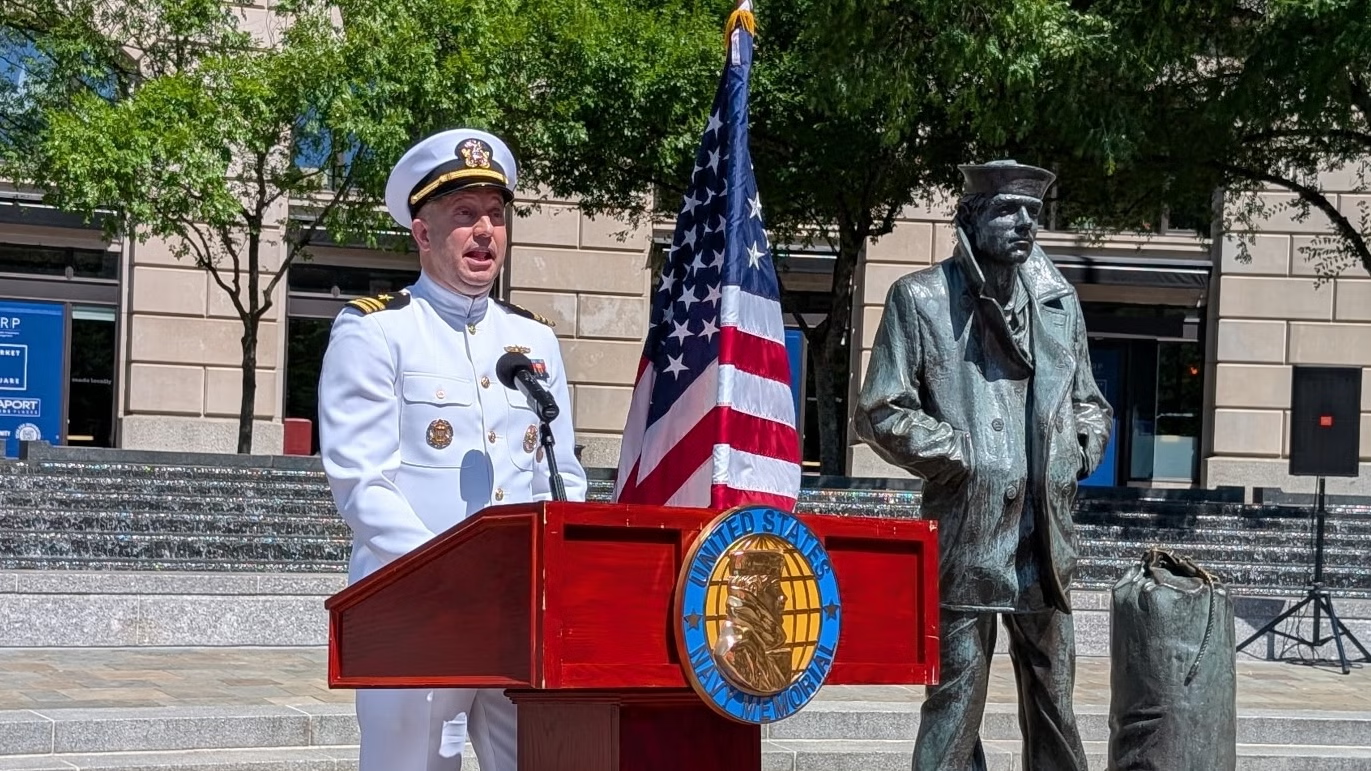SFS students are instilled with the value of service from the moment they step onto campus—and they hold onto that value long after they leave the Hilltop. Upholding that legacy can take many paths. SFS alumnus Navy Lieutenant Commander Jeffrey Krilla (SFS’91) is a prime example of this mission. On May 17, 2025, Krilla was awarded the Navy and Marine Corps Medal—the highest non-combat decoration awarded for heroism by the U.S. Department of the Navy—for saving three lives at sea. We spoke to him about his time at SFS, insights from his career and connections between his educational journey and dedication to service.
International affairs framed by Africa
Krilla’s interest in international affairs was nurtured from an early age. His father was a naval aviator then commercial airline pilot, which gave Krilla and his family opportunities to travel internationally growing up. He wanted to pursue that interest through academic channels, leading him to SFS, where he focused his studies on National Security and the Cold War.
“As the geopolitical environment evolves, Georgetown has always been at the cutting edge. Studying at SFS helped crystallize my interest in international affairs and better understand the world’s stage for my future military, diplomatic and corporate career,” Krilla says.
After graduation, he spent a year participating in the Georgetown Volunteers in Southern Africa program. He taught 10 classes each day—from math to English to history—and helped organize athletic programs and other after-school activities at a rural high school in the Limpopo region of South Africa.
This hands-on experience helped shape the beginning of his career journey which led to Capitol Hill, where he worked for 10 years as a congressional aide. Krilla was later recruited by then–U.S. Secretary of State Condoleezza Rice, joining the U.S. State Department in January 2006 as Deputy Assistant Secretary for Democracy, Human Rights and Labor.
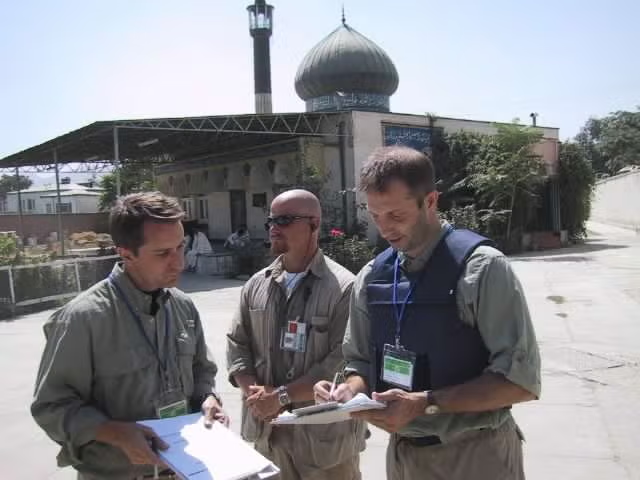
“I had wide-ranging responsibilities—helping lead the implementation of the Darfur Peace Agreement, rescuing and rehabilitating child soldiers in Uganda, supporting democratic transition in Liberia and promoting peace and security across the continent. I had a global portfolio around human rights and democracy, but Africa was really my particular expertise,” he says.
“They train us to run toward a crisis, not away”
While serving as a senior State Department official, Krilla was approached by the Navy for expertise as it was establishing Africa Command (AFRICOM). He was commissioned as a Naval Intelligence officer in the Navy Reserves to provide deep subject matter expertise on a continent that had not historically been a U.S. National Security priority, leading efforts to combat piracy in Somalia and developing capacity building programs to support allied partner nations.
Fast forward to Christmas Day 2015, while vacationing in Miami Beach, Florida, with his wife, Krilla heard screams coming from the water. He spotted a man caught in a rip current hundreds of yards from shore and dove in to rescue him. As he carried the exhausted man back to land, he spotted two young girls being carried farther out to sea. Without hesitation, Krilla plunged back into the water and fought the strong currents to save one girl while directing a late-arriving lifeguard toward the other.
Even while on vacation the military operational mindset—assessing the situation, identifying the solution and executing it—came back to him: “In the military, they train us to run toward a crisis, not away. And I think on that day when it would have been just easy to stay on the beach or to ignore the problem, my training kicked in.”
On May 17, 2025, Krilla received the Navy and Marine Corps Medal, awarded to individuals who not only perform a lifesaving action but endanger their own in the process. It is above the Bronze Star and below the Silver Star in Navy order of precedence.
At the ceremony, Krilla’s father, a retired Naval Aviator, wore his uniform, and one of his daughters sang the national anthem. The award was presented by Rear Admiral Michael Brown, USN (MSFS’91), Krilla’s commanding officer at AFRICOM, on behalf of the Secretary of the Navy.
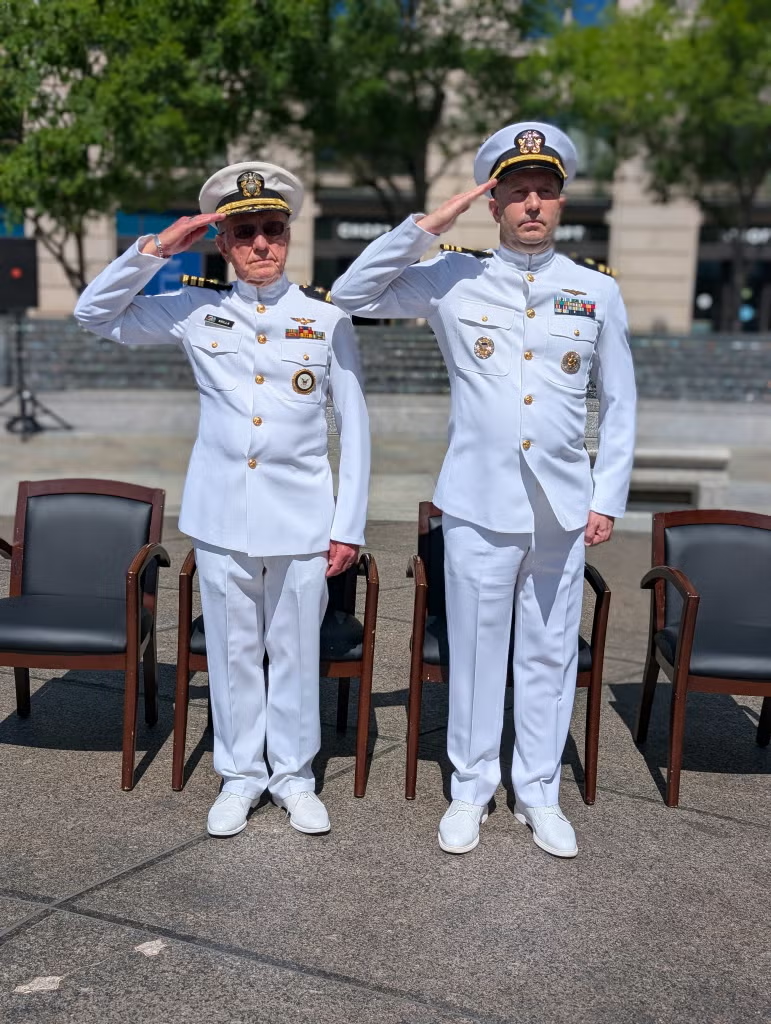
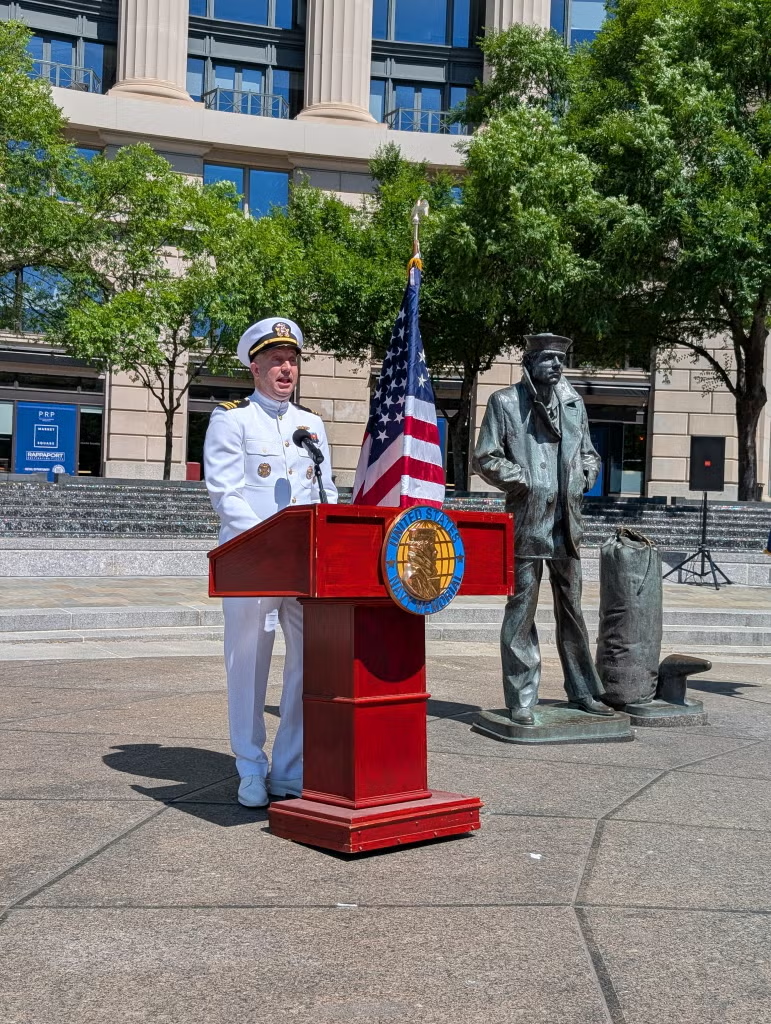
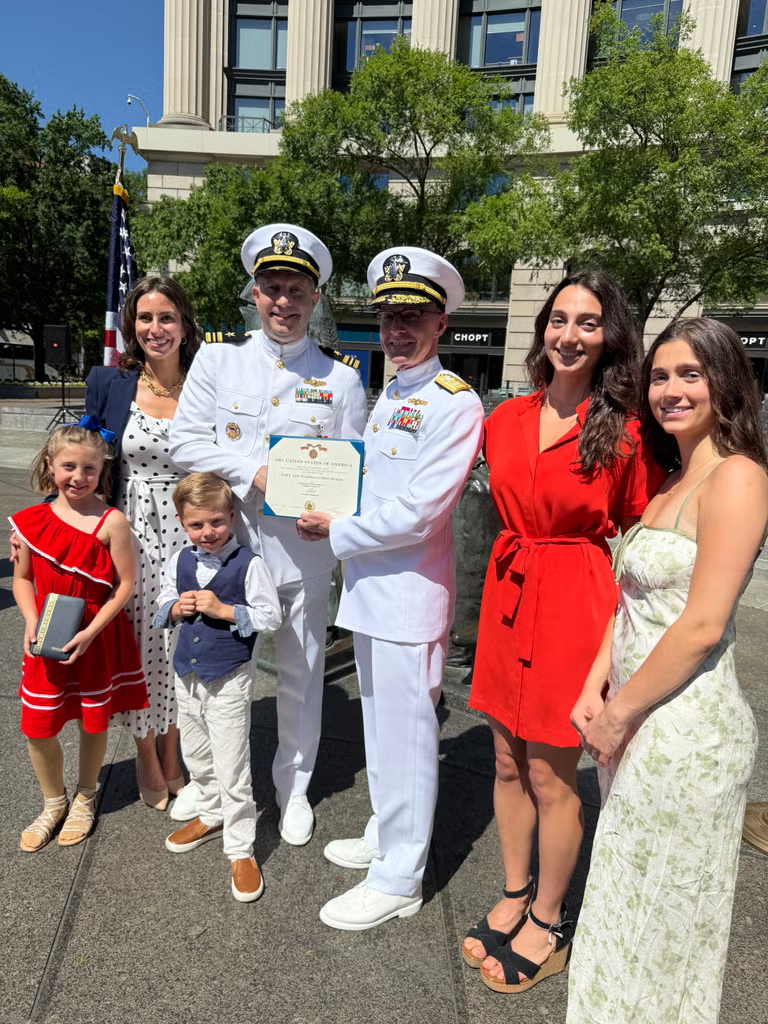
During the ceremony, Admiral Brown remarked: “Having known Jeff for over a decade, I can attest that this act of valor, while extraordinary, is entirely consistent with his character and his distinguished service as a naval officer.”
Krilla is humble about his actions: “I’d like to think anyone would have done the same thing if they were in my shoes. I believe people find the adrenaline and the motivation to answer the call when needed.”
Global service mindset
When it comes to building careers in military service, national security or public service more broadly, Krilla advises students to develop a plan that looks ahead—but not to be “so rigid that you miss opportunities that may take you in directions you hadn’t foreseen.”
While SFS trains its students in the substantive—language, foreign policy, comparative governments—Krilla emphasizes how it is all in service of contributing to the greater good. Above all, he urges students to strive to make a difference: “Whether you’re working in diplomacy or development, the military or business, it’s more than just a job. There’s an element of service with everything that we’re trained to do.”
